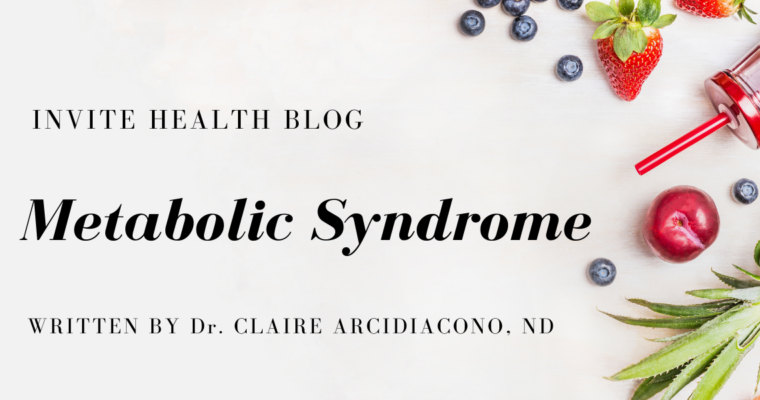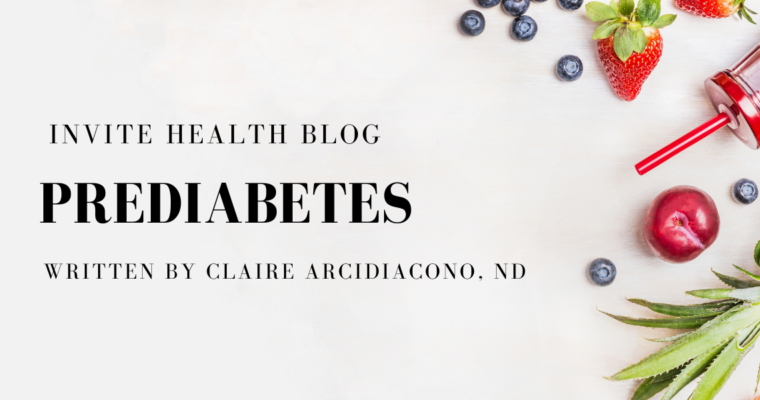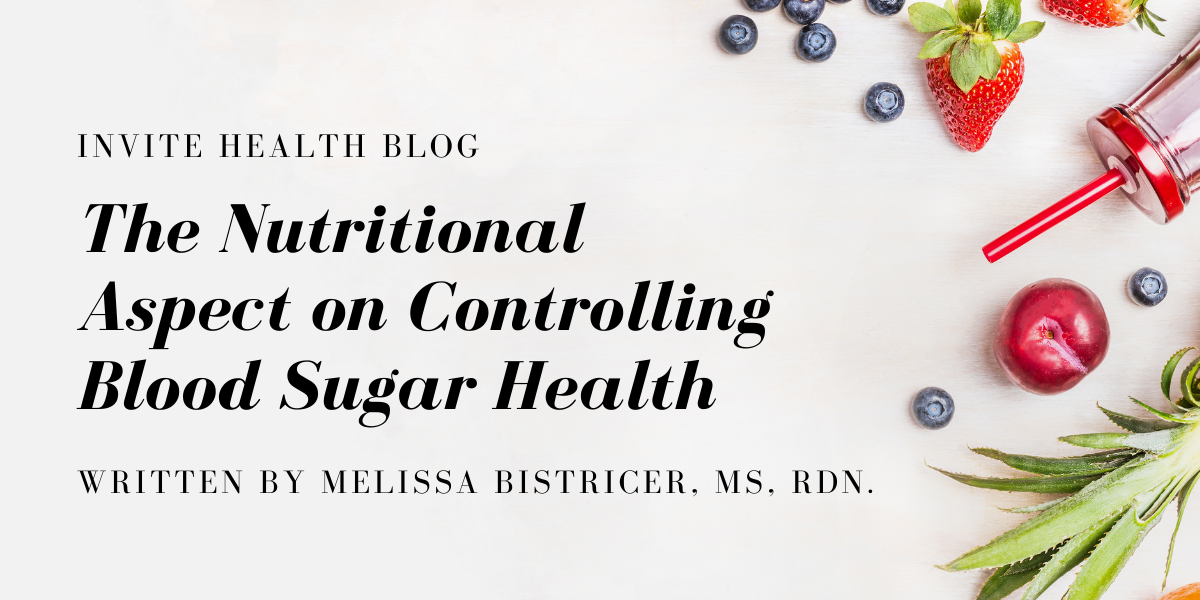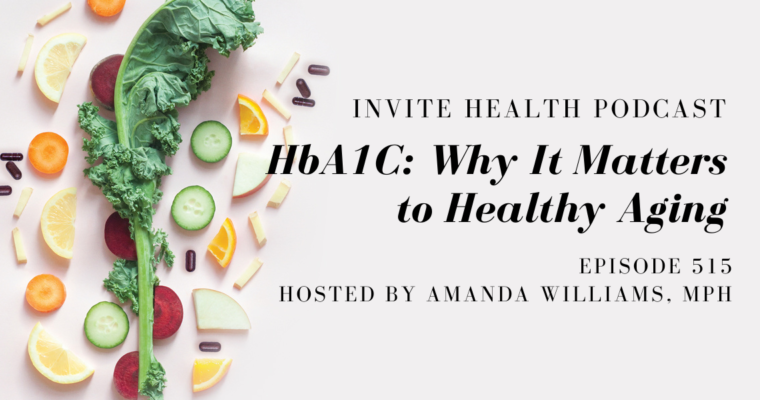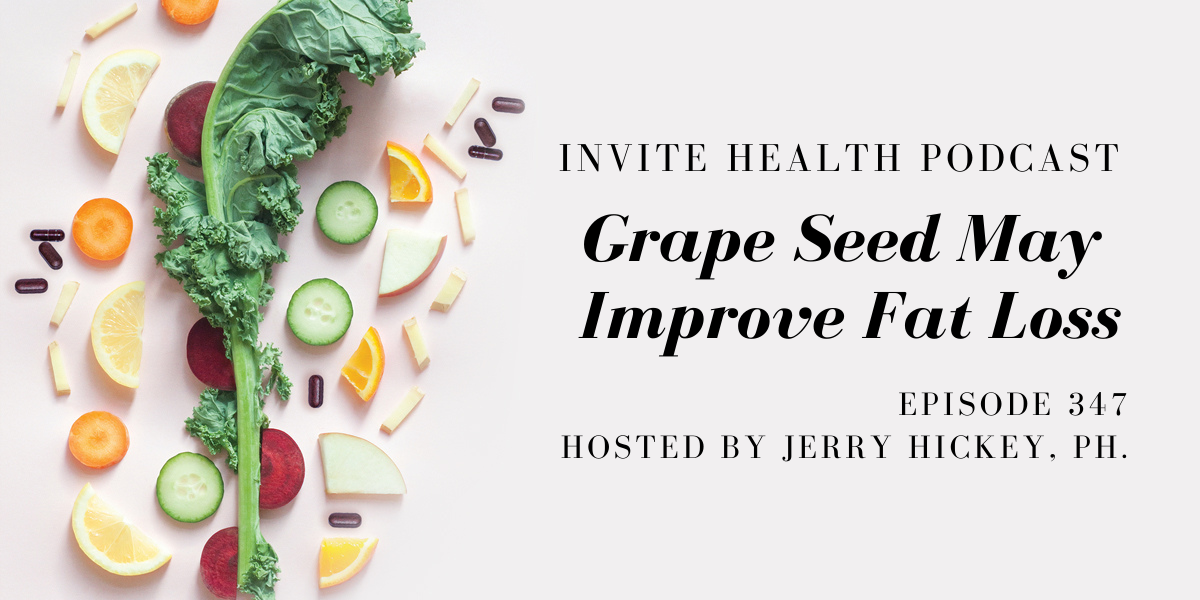Blood Sugar
Written by Melissa Bistricer, MS, RDN
For further questions or concerns email me at mbistricer@invitehealth.com
The average American is consuming an average of about 17 teaspoons of sugar per day, which approximately adds up to 60 pounds of added sugar yearly. To put that into perspective for you that is about 6, 10-pound bowling balls!†
So How Does Blood Sugar Affect Our Bodies?
Sugar can damage our joints, bones, skin, eyes, and almost every part of our bodies. Too much sugar in the body can lead to hyperglycemia when the body is overloaded with sugar in the blood and the body lacks enough insulin. Insulin is a hormone that is made by the pancreas and helps to control the amount of sugar in the bloodstream and move it into the cells for energy. Hyperglycemia is commonly seen with disease states such as diabetes and metabolic syndrome. Although medications like steroids, being inactive, consuming excessive carbohydrates, or not getting enough insulin can lead to hyperglycemia. Not taking care of high blood sugars can lead to long term and short term damages. The long term effects can include macrovascular (large) and microvascular (small) blood vessels. This can further lead to a heart attack, stroke, or problems with kidneys, eyes, gums, feet, or nerves. Routinely we want to measure the average blood sugar levels in the blood within the past 3 months called the Hemoglobin A1C value. The hemoglobin A1C level commonly is used to diagnose prediabetes and diabetes to help manage prediabetes or diabetes.†
Nutrients, herbs and protein are beneficial to helping keep blood sugar levels balanced and limit sugar cravings. The foods we eat today will affect us hours, weeks, days, years later. We have the ability to change our lifestyles to limit the chance of developing Type 2 Diabetes or metabolic syndrome through diet, exercise, and lifestyle modifications!†
Medical Nutrition Therapy For Blood Sugar
Carbohydrates which turn into glucose are our main source of energy and we need it for our brains to function properly. Different types of carbohydrates will have a different effect on the body. We have two types of carbohydrates which are simple to understand: complex and simple carbohydrates.†
Complex carbohydrates have long chains of sugar molecules that take longer to break down providing longer lasting energy to the body. The body has the ability to break glucose down slower because the body has to first break down the fiber in complex carbs to access the energy. Simple carbohydrates have shorter chain sugar molecules which break down faster into the body for energy causing a spike in our blood sugars. This initial spike is sometimes referred to as a “sugar rush” from sugary foods such as a chocolate bar or a can of Coca Cola. The function of the carbohydrate is to provide our bodies with energy, where complex carbohydrates do this more effectively.†
THIS HIGH-FIBER DIET IMPROVES GUT BACTERIA AND BENEFITS THOSE WITH TYPE-2 DIABETES >> Read Here!
Let’s consider the types of food containing carbohydrates as complex and simple can be important for a healthy balanced overall diet. Sugar comes in many forms and is generally hidden in packaged foods. It is important to be aware of this and shop smarter not harder.†
So Which Is Better: Complex Carbohydrates or Simple Carbohydrates?
There is no right or wrong answer here as simple carbohydrates are presented in beneficial foods in our diets such as fruits, vegetables, milk and milk products. Foods we may want to limit or avoid from our diet are candies, sugary beverages, syrups, table sugar, fruit juice concentrates, processed foods with added sugar, such as baked goods or some cereals. Complex carbohydrates like white flour, white bread or cornmeal are missing the bran and germ resulting in lower fiber content having a lower nutritional value than whole grain foods. High complex carbohydrates that may help reduce the risk of Type 2 Diabetes are brown rice, barley, oats, spelt, legumes, vegetables, and nuts.†
We learn that it is important to look at the whole food rather than the type of carbohydrate as complex and simple carbs both have beneficial foods to consume when looking to reduce the risk of a high blood sugar spike in the bloodstream.†
Vitamins, Minerals & Herbs
While we know that there is nothing like replacing a balanced diet rich in whole fruits, vegetables, grains, and unrefined/unprocessed foods there are several studies to show supplements supporting healthy blood sugar balance, aiding insulin production, and working to reduce insulin resistance.†
–Chromium has been shown to aid in the regulation of insulin action and its effect on carbohydrates, protein, and lipid metabolism. Chromium picolinate has been studied to help with insulin resistance and reduce the risk of cardiovascular disease and type 2 diabetes.† 1
–Gymnema Sylvestre shows that the nutrient may have therapeutic uses specifically on blood glucose-lowering potentials. Gymnemic acid has been shown to prevent the absorption of sugar molecules by the intestine, leading to a reduction in blood sugar levels.†2
–Alpha-Lipoic Acid (ALA) is a powerful antioxidant that plays a role in supporting healthy blood sugar levels. ALA has the ability to help diabetics with peripheral neuropathy in pain due to free radicals being killed off. †3
–Cinnamon Bark Extract has been recently studied to assess if the consumption has an effect on fasting blood glucose, HgbA1c, and body mass index (BMI). The results indicated in national and international literature that cinnamon has an impact on reducing blood glucose levels in healthy individuals.†4
HOW CINNAMON AND COROSOLIC ACID SUPPORT HEALTHY BLOOD SUGAR LEVELS – INVITE HEALTH PODCAST, EPISODE 144 >> Listen Now!
–Banaba Leaf extract comes from a native planet in the Philippines and Southeast Asia and has been researched to have an impact on anti-diabetic and anti-obesity factors. Corosolic acid in the Banaba extract has shown beneficial properties in various factors involving glucose regulation and metabolism. This includes cellular uptake of glucose, improved insulin sensitivity, and decreased gluconeogenesis, therefore lowering blood glucose levels.†5
The Blood Sugar Health Program has these nutrients within to unique formulas called Gluco HxⓇ and C-Betics HxⓇ. They are comprehensive supplements to help to support healthy blood sugar levels in conjunction with a healthy balanced diet.†
For further questions or concerns related to dietary and nutritional supplement recommendations email me at mbistricer@invitehealth.com
Sources
- A scientific review: the role of chromium in insulin resistance. Diabetes Educ. 2004;Suppl:2-14. PMID: 15208835.
- Khan, F., Sarker, M., Ming, L., Mohamed, I., Zhao, C., Sheikh, B., Tsong, H. and Rashid, M., 2022. Comprehensive Review on Phytochemicals, Pharmacological and Clinical Potentials of Gymnema sylvestre. [online] frontiers in pharmacology. Available at: <https://www.frontiersin.org/articles/10.3389/fphar.2019.01223/full> [Accessed 22 March 2022].
- Mount Sinai Health System. 2022. Alpha-lipoic acid Information | Mount Sinai – New York. [online] Available at: <https://www.mountsinai.org/health-library/supplement/alpha-lipoic-acid#:~:text=Several%20studies%20suggest%20alpha%2Dlipoic,and%20legs%20from%20nerve%20damage.> [Accessed 9 June 2022].
- Nildem Kizilaslan, Nihal Zekiye Erdem, “The Effect of Different Amounts of Cinnamon Consumption on Blood Glucose in Healthy Adult Individuals”, International Journal of Food Science, vol. 2019, Article ID 4138534, 9 pages, 2019. https://doi.org/10.1155/2019/4138534
- Miura T, Takagi S, Ishida T. Management of Diabetes and Its Complications with Banaba (Lagerstroemia speciosa L.) and Corosolic Acid. Evid Based Complement Alternat Med. 2012;2012:871495. doi:10.1155/2012/871495


